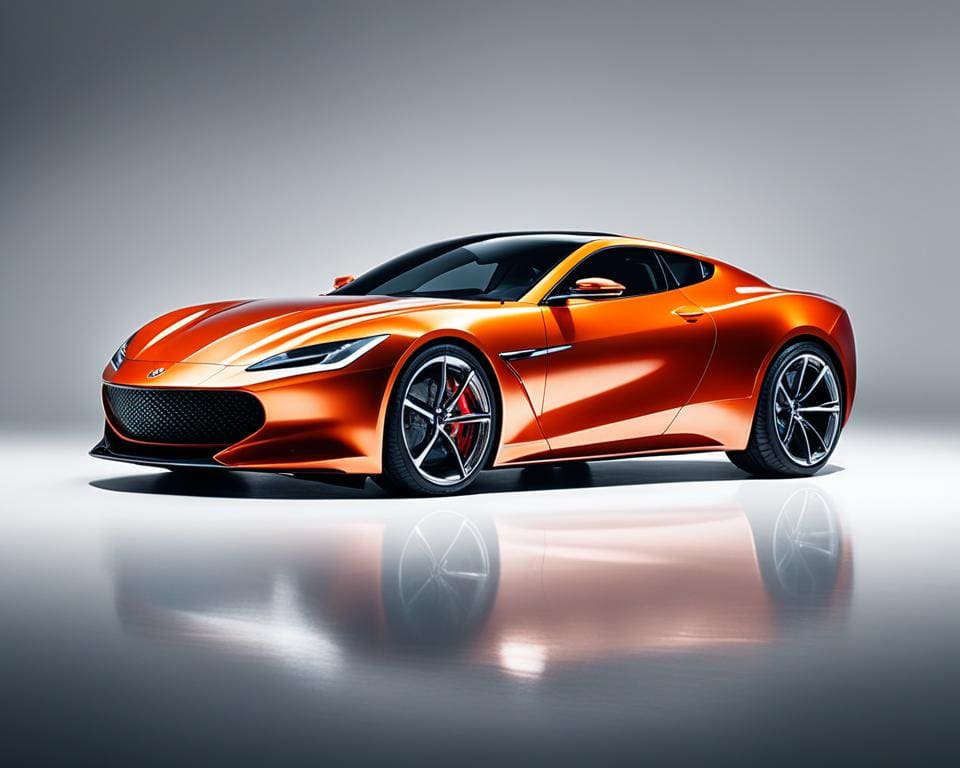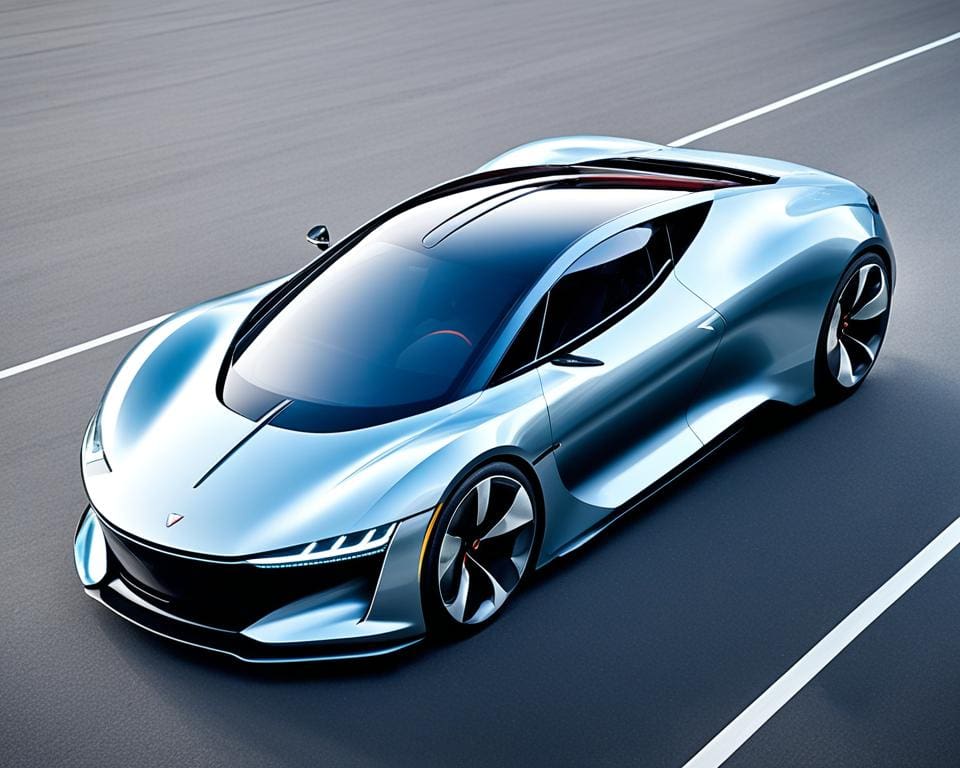The latest trends in sports car technology are changing the car world. They interest both car fans and everyday drivers. These changes bring amazing features to sports cars.
These updates improve how cars perform, their safety, and how fun they are to drive. Cars are getting lighter and faster thanks to new materials like carbon fiber. Plus, more people want electric cars, with sales doubling in five years.
The sports car technology advancements are exciting for drivers. They also lay the groundwork for the future. Cars are becoming smarter with AI and systems that help drivers. This mix of old and new is making cars faster, safer, and cooler.
Innovative Automotive Design Transforming Sports Cars
Sports cars are going through a big change thanks to new designs. Today’s sports cars are more than just vehicles. They are modern masterpieces, combining great technology with smart engineering. This change is shaping a future where driving is about performance, being kind to the environment, and looking great.
Modernization of Technology
Technology is changing sports cars for the better. Cars now use light materials like carbon fiber. This makes them faster and more agile, without compromising safety. Combining powerful engines with turbo options offers quick acceleration. Plus, more sports cars are going electric, growing by 14% each year. Electric cars are now 25% quicker than traditional cars, showing a big industry shift.
Aerodynamic Proficiency
Aerodynamics is key for top performance and fuel efficiency in sports cars. Designers are using clever aerodynamics to cut drag and improve speed. This also makes cars look amazing. Soon, 85% of new models will have advanced dashboards for a better driving experience. These changes are making sports cars the epitome of cool design.

Latest Trends in Sports Car Technology
The world of sports cars is moving towards more innovation, especially with sustainable technology. Companies are now focusing on electric and hybrid engines. This shift helps reduce harm to the environment and still delivers top performance. Electric cars from brands like Porsche and Ferrari are gaining popularity. They show that cutting-edge sports car tech can be environmentally friendly and fun to drive.
Embracing Sustainable Technology
Car fans are seeing more electric tech in sports cars. An example is the Chevrolet Corvette E-Ray. This car shows that it’s possible to be eco-friendly and still have high performance. Electric motors give quick speed boosts without using gas. This approach is changing the sports car industry, which is worth about USD 110.25 billion. It brings together speed and care for the environment.
Artificial Intelligence and Autonomous Driving
Adding artificial intelligence to sports cars is creating a new driving experience. Cars now have smart systems for safer and more efficient driving. These features blend technology with human control. With companies like Tesla and McLaren advancing self-driving cars, sports cars are entering a new era. This progress means more innovation and comfort for drivers.
High-Performance Vehicle Technology Advancements
The world of high-performance vehicles is changing fast. Sports car advancements are big in making driving fun and better. Now, car makers use light materials like aluminum and carbon fiber. These materials make cars fast and save gas. So, sports cars go fast without using a lot of fuel.
Turbocharging is leading the way in engine technology. It lets smaller engines run powerfully. Drivers get to enjoy speed and still save on fuel. Also, cars now have dual-clutch gearboxes. They make changing gears smooth and quick. This adds to the fun of driving modern sports cars.
Safety is key in fast cars. Cars now come with systems that help keep you safe. They have controls that adjust speed and warn about crashes. The market for electric and hybrid sports cars is growing. It was worth USD 23.4 billion in 2023. It’s expected to grow more. These changes mean future high-performance vehicles will be exciting. They will offer great performance, safety, and fuel efficiency.









